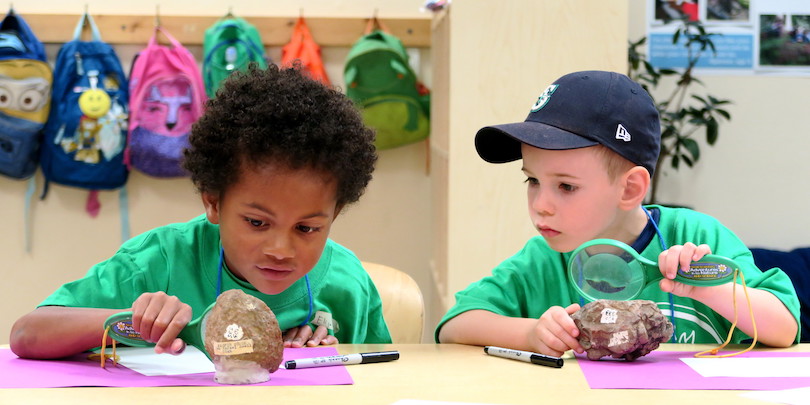Brand Story – Oregon Cultural Trust urges Oregonians to help protect arts and culture.
The pandemic has wreaked havoc on every economic sector, but our once-vibrant cultural scene has suffered more than most. Performing arts organizations, museums, concert halls, libraries, theater groups and dance companies across the state have taken a huge hit due to closures and ongoing restrictions on large gatherings.
The unique role of the Oregon Cultural Trust, established almost 20 years ago by the Oregon Legislature to protect Oregon’s cultural vitality, has never been more critical. The Cultural Trust encourages and incentivizes Oregonians to leverage their charitable giving with a cultural tax credit that rewards them at tax time. Participation in the tax credit provides annual funding to cultural organizations across the state while also growing a permanent fund for future generations.
“You and I can help support a cultural organization by donating directly to them,” says Oregon Cultural Trust executive director Brian Rogers. “By making a matching donation to the Oregon Cultural Trust, you double your investment in the health of Oregon’s cultural community. The tax credit means you get 100 percent of what you donated to the Cultural Trust back at tax time. It’s an incredible tool Oregonians have to maximize the impact of their contributions. The cultural tax credit is unique to Oregon and is a testament to how much we all value creative expression in our lives.” Brian Rogers, Cultural Trust Executive Director
Brian Rogers, Cultural Trust Executive Director
Cultural Trust distributes $25.7 million in relief funding
This year the Cultural Trust also distributed $25.7 million in CARES Act funds allocated by the Oregon Legislature to the Coronavirus Relief Fund (CRF) Cultural Support grant program to 621 cultural groups across the state—ensuring the survival of many that were facing closure.
“The award notice brought us close to tears of relief,” said Ruth Shelly, executive director of Portland Children’s Museum. “With the state of Oregon guidance not allowing us to reopen (there’s a prohibition on interactive exhibits), this grant is a lifeline. Without it, I’m not sure we would have survived. While we’re deeply grateful for our own award, we celebrate with the cultural community at large that has benefitted from this funding,” Shelly added.
Rogers says that the Trust was able to support on average 50 percent of organizations’ funding requests. “We were grateful to offer the support,” he says, “but the need continues to grow for cultural organizations that depend on large gatherings for essential ticket revenue.”
In June a Cultural Trust survey revealed the harsh reality of the losses suffered. Three hundred and thirty cultural nonprofits representing 83 percent of Oregon counties projected a collective loss of $40 million through June 30 and average losses of $121,281. The majority of respondents (54 percent) have annual revenues of less than $250,000 and operate outside of the Portland Metro area.
The scale of COVID’s devastating impact persists despite organizations’ efforts to provide opportunities for engagement while social distancing. Ashland’s Kapi Oanuenue now preserves and shares Hawaiian traditional cultural practices online, and the Tower Theatre in Bend has hosted many virtual programs and events. The Oregon Black Pioneers in Salem developed the state’s first online African American Museum.
In a focused effort to help the cultural community recover in 2021, the Cultural Trust is urging more Oregonians to donate to organizations they value and to utilize the tax credit to leverage greater annual funding to protect Oregon’s cultural sector.
 Children enjoying the Portland Children’s Museum prior to the pandemic. The Children’s Museum regularly receives funding from the Cultural Trust, including a recent CRF Cultural Support relief grant.
Children enjoying the Portland Children’s Museum prior to the pandemic. The Children’s Museum regularly receives funding from the Cultural Trust, including a recent CRF Cultural Support relief grant.
Unique tax credit ensures annual funding for culture
Every fall, donors are encouraged to first make a donation to one or more of the 1,400+ cultural nonprofits the Cultural Trust supports, then make a matching donation to the Trust before December 31. The donation to the Trust comes back, dollar for dollar, when the donor claims the cultural tax credit on their state taxes. The limit on the tax credit is $500 for an individual, $1,000 for a couple filing jointly and $2,500 for a Class C corporation.
Annually the Cultural Trust distributes up to 60 percent of raised funds in direct grants to cultural organizations, including five statewide partners, county and tribal cultural coalitions – who regrant the funds in their communities – and cultural organizations through a competitive grant program. The remaining 40 percent is invested in the Trust’s permanent fund. In 2020 the Trust awarded $2.7 million to 139 organizations across the state.
If you donated to any nonprofit arts, history, heritage or humanities nonprofits in Oregon this year, claim your Oregon Cultural Trust tax credit and double your impact. Donations and matching donations to the Trust can be made through December 31.
“Cultural organizations exist to engage and inspire us, enriching our lives in so many ways,” says Rogers. “Everyone finds enlightenment and enjoyment by attending cultural events or visiting a local library or museum. We know that access to culture builds a better society and creates a sense of place. Until we can gather for cultural events again Oregonians must support our cultural organizations now to ensure they are there for us in the future. We need them, and they need us, now more than ever.”
Learn more and donate at culturaltrust.org
Brand stories are paid content articles that allow Oregon Business advertisers to share news about their organizations and engage with readers on business and public policy issues. The stories are produced in house by the Oregon Business marketing department. For more information, contact associate publisher Courtney Kutzman.





